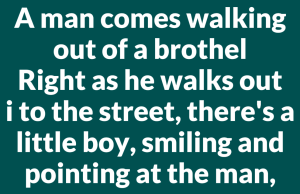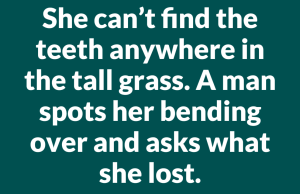
My name is Sarah, and I’m 35 years old.
I work as a secretary for an insurance company, living a life that’s mostly unremarkable and invisible to the world around me.
The only real disruption in my otherwise quiet routine came in the form of Mrs. Raines — my 65-year-old neighbor, known for her sharp tongue and a yappy Pomeranian whose bark matched her piercing voice.
Like clockwork, she would be out in her garden each morning, meticulously tending to her roses and offering unsolicited commentary on everything from my “boring but practical” wardrobe to my apparently offensive habit of leaving the recycling bin out past noon on collection day.

I always responded the same way, with a polite smile and a cheery, “Good morning to you, too, Mrs. Raines.”
And that was our pattern for three years.
She lived loudly; I kept to myself.
Then, all of a sudden, the daily barrage of comments and barking stopped.
It took me two full days to realize how quiet things had become.
By the third day, I found myself glancing toward her house each time I picked up the mail, noticing the absence of her usual critiques and the dog’s shrill yapping.
No, shears snipping roses. No complaints about Mr. Wilson’s lawn across the street. Just silence.
By day five, the quiet felt unnerving.
I figured she had maybe gone to visit a relative — I remembered her mentioning a sister in Cleveland once, between remarks about my “touristy wind chimes.”
But then, early one morning as I was about to leave for work, I heard frantic barking coming from her home. Nonstop and desperate.

I stood in my driveway, keys in hand, looking at her perfectly kept Cape Cod home, its white trim bright and tidy as always, the tulips still in bloom.
But the barking didn’t stop — it grew more intense, more panicked.
Instinct kicked in. I put my keys in my pocket and walked across the lawn to her front door.
“Mrs. Raines?” I called, knocking. “It’s Sarah, your neighbor. Are you alright?”
There was no answer, only more barking.
I moved around to the side of the house and peered through the windows. Everything inside seemed in place — the dining room was immaculate, the kitchen spotless.
But then I looked through the living room window — and froze.
I grabbed a nearby rock and smashed the glass, slicing my hand as I tried to open the latch.

Blood ran down my arm, but I hardly noticed.
“Mrs. Raines!” I yelled, crawling through the broken window.
Her little Pomeranian ran toward me, yipping, then turned and darted back toward the motionless figure on the floor.
Mrs. Raines was pale, lips tinged blue. She was alive, but barely — her breathing was shallow and strained.
With trembling fingers, I dialed 911.
Paramedics arrived within minutes and rushed her to the hospital. I stood in her front yard, glass on my clothes, my hand bleeding, and her dog trembling beside me.
At the hospital, I waited three long hours.
Finally, a doctor came to speak with me. Her face was serious but not grim.
“She had a heart attack, but we were able to stabilize her. She’d been experiencing symptoms for several days — chest pain, dizziness, nausea — and ignored them.”

She gave me a small smile. “If you hadn’t found her when you did, she wouldn’t have made it another hour.”
Over the next two weeks, I stepped into her role — watering her roses, picking up her mail, feeding Muffin, and visiting her in the hospital each evening with flowers from her own garden.
Our early visits were stiff. She was too weak for her usual critiques, and I was unsure how to interact with a subdued Mrs. Raines.
But something between us shifted.
When she returned home, I helped her inside — and she didn’t complain once. No comments about my perfume or crooked pillows.
Instead, she offered me tea.
In the weeks that followed, a surprising friendship grew.
Behind her prickly demeanor was a woman who had experienced great love and deep loss.

And she learned about me — my dreams of visiting Japan, a broken engagement years ago, and the children’s stories I secretly write but never share.
Now, she sits beside me on her porch, sipping iced tea and waving at neighbors she once scolded.
We’re an unlikely duo — the quiet secretary and the reformed neighborhood curmudgeon. But somehow, we make sense together.















